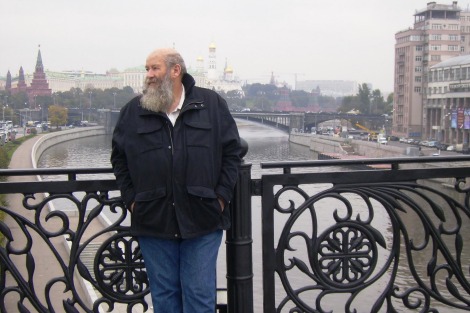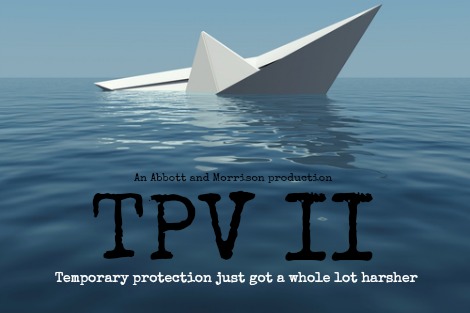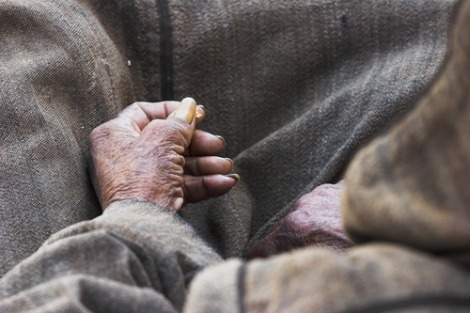Keywords: Cold War
There are more than 200 results, only the first 200 are displayed here.
-

AUSTRALIA
- Brian Matthews
- 28 February 2014
7 Comments
Joe Hockey's idea of an age of entitlement is shallow and facile. Announcing the end of an 'age' is just another way of obscuring the truth that you haven't the faintest idea what the hell is going on, or that you suspect what's going on but not how to influence, redirect or stop it. So you fall back on this persuasive notion of a great shift in the times. The next 'age' for those whose entitlement is disappearing will be marked by unpleasantness.
READ MORE 
-

INTERNATIONAL
- Howard Willis
- 19 February 2014
6 Comments
On the occasions I got into detailed discussions with strangers in Moscow, a pattern emerged. Saying I was Australian prompted a polite request for clarification: 'But your ancestry?' The reply that I was fifth-generation Australian was treated as an evasion, or met with the assumption that my ancestors were 'bandits'. Generally, Muscovites took a second look at me and the box they ticked was 'Jew'.
READ MORE 
-

AUSTRALIA
- Kerry Murphy
- 17 January 2014
3 Comments
The new TPV is harsher than the version introduced by the Howard Government, mainly because it has no pathway to a permanent visa — once granted, it is likely that the best you will ever get in Australia is a TPV. The TPV is a punishment, not a deterrent; a cruel visa that reflects the cruelty of the politicians introducing it.
READ MORE 
-

INTERNATIONAL
- Catherine Marshall
- 15 January 2014
1 Comment
I said my own private goodbye almost two years ago, when I visited Robben Island on a trip back to my homeland of South Africa. That journey across Table Bay, towards the tiny green cell in which you lived for much of your 27-year incarceration, took me not so much to an outpost of apartheid as to the birthplace of democratic South Africa.
READ MORE 
-

INTERNATIONAL
- Duncan MacLaren
- 18 December 2013
17 Comments
After six years in Australia, I am returning home to Scotland to work for the next year's referendum, which will ask if Scotland should become an independent country. It is essentially a contest between the present insular, Little Englander nightmare and a place in the world as a sovereign state. That's worth leaving Australia for!
READ MORE
-

INTERNATIONAL
- Catherine Marshall
- 09 December 2013
13 Comments
I said my own private goodbye almost two years ago, when I visited Robben Island on a trip back to my homeland of South Africa. That journey across Table Bay, towards the tiny green cell in which you lived for much of your 27-year incarceration, took me not so much to an outpost of apartheid as to the birthplace of democratic South Africa.
READ MORE
-

INTERNATIONAL
- Justin Glyn
- 06 December 2013
15 Comments
The recent revelations that ASIO raided the offices of Timor Leste's lawyers and detained its star witness just before its case against Australia highlights, once again, the question of the linkage between national and commercial interests. ASIO's governing statute does not permit it to engage in economic espionage. Unfortunately, the distinction between government and commercial interests is growing increasingly hard to draw.
READ MORE
-

INTERNATIONAL
- Ray Cassin
- 22 November 2013
10 Comments
The assassination of John F. Kennedy 50 years ago elicited a particular quality of grief. It was not only a matter of mourning the violent death of a world leader who, at the time, was much admired. The notion also stuck that something called innocence had been lost because of what had happened in Dallas. That sense has withered under reassessments of Kennedy's character and record in office but it has never been extinguished entirely.
READ MORE 
-

RELIGION
- Frank Brennan
- 12 November 2013
5 Comments
'Having thrown off the shackles of compulsion endured by pre-Vatican II Catholics, we relish that we come to the table not because we are forced, not because of social expectations, not because of the mindset of the mob, but because we are graciously called and freely responding.' Frank Brennan's Camino Address, Parish of Our Lady of the Way North Sydney, 12 November 2013
READ MORE
-

AUSTRALIA
- Frank Brennan
- 02 November 2013
7 Comments
'There have been innumerable post-mortems and words of advice as to how the party with new structures, election rules, and policies can pick itself up, dust off, and win the next election. Sadly some of those post-mortems have come with more coatings of spite and loathing. It is no part of my role in the public square as a Catholic priest to offer such advice.' Frank Brennan's address to the Bathurst Panthers Club, 2 November 2013.
READ MORE
-

AUSTRALIA
- Kerry Murphy
- 22 October 2013
22 Comments
The new TPV is harsher than the version introduced by the Howard Government, mainly because it has no pathway to a permanent visa — once granted, it is likely that the best you will ever get in Australia is a TPV. The TPV is a punishment, not a deterrent; a cruel visa that reflects the cruelty of the politicians introducing it.
READ MORE 
-

AUSTRALIA
- Megan Graham
- 16 October 2013
10 Comments
Christian activist and author Shane Claiborne wrote that the real tragedy of poverty is not that we do not care about the poor, but that we do not know the poor. As my memories of particular brushes with people living in poverty fade, feelings of empathy begin to lose their potency; a natural attrition when their reality, so distant from my own, is so lost among the 'First World Problems' of my inner city life.
READ MORE 